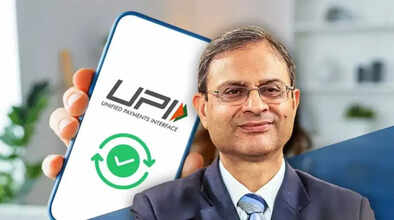UPI Payment: Will the free UPI payment service be discontinued? RBI Governor's response is this...

Reserve Bank of India (RBI) Governor Sanjay Malhotra clarified in a press conference following the Monetary Policy Committee (MPC) meeting that no proposal to charge fees on Unified Payments Interface (UPI) transactions has been placed before the central bank. The Governor had issued a clarification on this issue in a press conference following the previous policy meeting. He stated, "I never said that UPI will be free forever. I simply said that there are costs (associated with UPI transactions), and someone will have to pay them." He added that while who makes the payment is important, it is not more important than the person paying the bill. Therefore, for the sustainability of this model, someone must make the payment, either collectively or individually.
Concerns about Zero-Cost UPI
The Governor has on several occasions expressed concerns about the sustainability of UPI's zero-cost structure. Speaking at a BFSI summit in Mumbai in July, he pointed to the rapid expansion of digital payments, saying that UPI is a critical infrastructure. The government believes it should be available for free and is subsidizing it. And I would say it has yielded good results. According to RBI data, UPI processed 20 billion transactions in August 2025, a 34% increase in volume year-on-year.
Malhotra made this important statement.
Malhotra then stressed that the important thing is that UPI, or any other payment system, is accessible, affordable, secure, and sustainable... and it will only be sustainable if someone bears its costs. So, whether it's the government or someone else—it doesn't matter so much—the important thing is that the cost of any service must be paid for, whether collectively or on behalf of users. Currently, the government is supporting UPI by subsidizing transaction costs, keeping it free for users.
Disclaimer: This content has been sourced and edited from TV9. While we have made modifications for clarity and presentation, the original content belongs to its respective authors and website. We do not claim ownership of the content.

